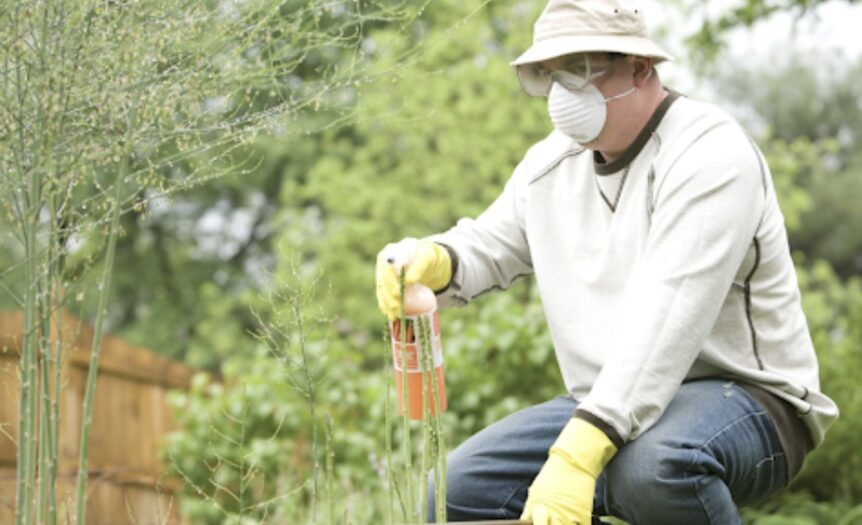As inhabitants of homes and businesses, pests are uninvited guests that can wreak havoc on our living and working spaces. From rodents scurrying in the dark corners to insects invading our pantries, the presence of pests poses various challenges. In this comprehensive guide to pest control, we explore the importance of effective pest management, common pests encountered, sustainable solutions, and the role of professionals in maintaining pest-free environments.
The Role of Pest Control Professionals
While preventive measures are crucial, the expertise of pest control professionals, such as Pest Solutions, becomes indispensable in tackling more complex infestations. Pest control professionals offer a range of services:
- Inspection and Assessment: Pest control experts conduct thorough inspections to identify the type and extent of infestations. This assessment guides the development of tailored solutions.
- Customized Treatment Plans: Recognizing that each infestation is unique, professionals create customized treatment plans based on the specific needs of the property and the nature of the pest problem.
- Use of Advanced Technologies: Pest control professionals leverage advanced technologies, such as electronic monitoring, heat treatments, and targeted pesticides, to address infestations effectively.
- Follow-up and Monitoring: Pest control is an ongoing process. Professionals provide follow-up services to ensure that the infestation is fully eradicated and implement monitoring systems for long-term effectiveness.
Understanding the Importance of Pest Control
Pest control is more than just eliminating annoying insects; it is a crucial aspect of maintaining health, hygiene, and structural integrity. Here’s why effective pest control is essential:

- Health Hazards: Pests such as rodents, cockroaches, and flies can carry and transmit diseases. Their presence in living or working spaces poses a direct threat to the health of occupants, leading to infections and other health issues.
- Structural Damage: Certain pests, like termites, can cause significant damage to the structure of buildings. They feed on wood, weakening the foundation and potentially leading to costly repairs if left unchecked.
- Food Contamination: Insects and rodents can contaminate food supplies, posing a risk to both residents and businesses. Contaminated food can lead to foodborne illnesses and result in financial losses for businesses in the food industry.
- Allergies and Asthma: Some pests, such as dust mites and cockroaches, are known allergens. Their presence can exacerbate allergies and asthma symptoms, particularly in sensitive individuals.
Sustainable Solutions for Pest Control
Sustainable pest control solutions have gained prominence as environmental awareness continues to grow. These methods prioritize the effective management of pests while minimizing the impact on ecosystems, non-target organisms, and human health. Embracing sustainable pest control practices not only addresses immediate pest issues but also contributes to the long-term health and balance of our environment. Here are some key sustainable solutions for pest control:

- Integrated Pest Management (IPM): Integrated Pest Management is a holistic and sustainable approach that focuses on long-term prevention and management of pests. IPM combines biological, cultural, physical, and chemical control methods to address pest issues. By integrating various strategies, IPM aims to reduce reliance on chemical pesticides, promoting a balanced and eco-friendly solution.
- Biological Controls: Biological controls involve the use of natural predators, parasites, or pathogens to manage pest populations. For example, introducing predatory insects that feed on pests or using bacteria to target specific pests. This method minimizes the need for chemical interventions, maintaining ecological balance.
- Crop Rotation and Companion Planting: In agricultural settings, sustainable pest control involves practices such as crop rotation and companion planting. Crop rotation disrupts the life cycles of pests and diseases, reducing their impact on specific crops. Companion planting involves strategically placing plants that naturally repel pests or attract beneficial insects, creating a more resilient and diverse ecosystem.
- Natural Repellents: Natural repellents, derived from plants or essential oils, can be effective in deterring pests. For example, peppermint oil, neem oil, and garlic are known for their repellent properties. These substances are less harmful to the environment compared to synthetic pesticides and can be used in homes and gardens.
- Beneficial Insects: Introducing beneficial insects, such as ladybugs or predatory beetles, can help control pest populations. These insects prey on harmful pests, providing a natural and sustainable means of pest management. This method is commonly used in agriculture and gardening practices.
- Physical Barriers and Exclusion Methods: Creating physical barriers and employing exclusion methods are sustainable approaches to pest control. This can include sealing entry points in buildings to prevent rodent or insect infestations and using screens or nets in agriculture to protect crops from pests while maintaining airflow.
- Trap Crops: Planting specific crops known as “trap crops” can divert pests away from the main crops. These sacrificial plants attract pests, providing an alternative food source and protecting the primary crops. This method helps reduce the reliance on chemical pesticides.
- Smart Pest Monitoring Systems: Leveraging technology, smart pest monitoring systems enable real-time tracking and response to pest activity. These systems use sensors, cameras, and data analysis to detect early signs of infestations, allowing for targeted and minimal pesticide use.
- Low-Impact Pesticides: When chemical control is necessary, opting for low-impact pesticides is a sustainable choice. These pesticides are formulated to have minimal environmental impact, targeting specific pests while preserving beneficial organisms. Choosing environmentally friendly formulations helps maintain biodiversity.
- Education and Outreach Programs: Raising awareness about sustainable pest control practices is essential for community engagement. Educational programs can inform individuals about the importance of biodiversity, the risks associated with certain pest control methods, and the benefits of adopting sustainable alternatives.
- Natural Predators and Habitat Enhancement: Encouraging the presence of natural predators by enhancing habitats is another sustainable strategy. For example, creating bird-friendly environments can attract birds that feed on insects, contributing to natural pest control.
- Organic Farming Practices: In agriculture, organic farming practices emphasize sustainable pest control methods. These include using organic fertilizers, rotating crops, and avoiding synthetic pesticides and herbicides. Organic farming prioritizes soil health and biodiversity, fostering a more sustainable and resilient ecosystem.
Community Involvement and Awareness
The success of pest control efforts also hinges on community involvement and awareness. Local residents play a vital role in reporting pest issues promptly, implementing preventive measures, and collaborating with pest control professionals. Educational initiatives aimed at raising awareness about common pests, their behaviors, and sustainable pest control practices contribute to building resilient and pest-free communities.
Conclusion: Creating Pest-Free Environments for Well-Being
Effective pest control is not just about eliminating nuisances; it’s about safeguarding the health, safety, and well-being of individuals and communities. Whether it’s preventing rodent-borne diseases, protecting structures from termite damage, or ensuring food safety in businesses, pest control is a multifaceted endeavor. By embracing sustainable practices, seeking professional expertise when needed, and fostering community awareness, we can collectively create environments that are inhospitable to pests, ensuring a healthier and happier living and working experience for all.








